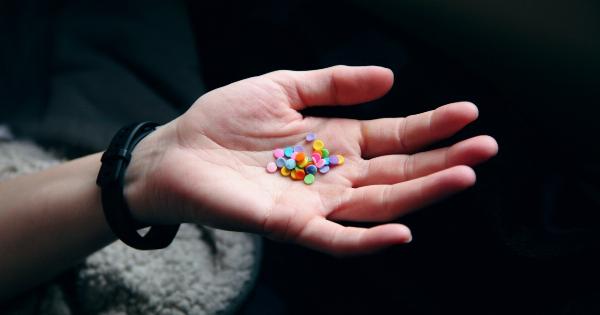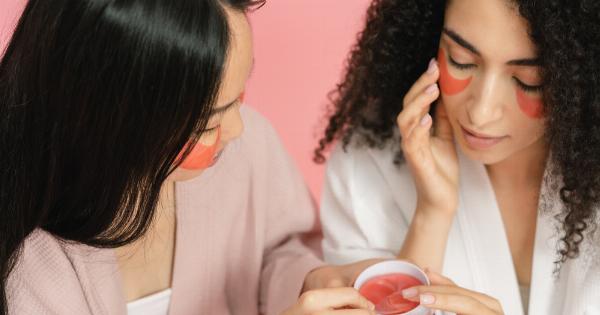Rose water has been used for centuries for its various health and beauty benefits. It is a natural product made from the extraction of rose petals and is often used in skincare, cooking, and aromatherapy.
In this article, we will explore the numerous benefits of rose water and provide a step-by-step guide on how to make your own rose water at home.
1. Soothes and hydrates the skin
Rose water is well-known for its soothing properties, making it a popular ingredient in skincare products. It helps to hydrate and moisturize the skin, making it look radiant and healthy.
Rose water is especially beneficial for those with dry or sensitive skin, as it helps to calm any irritation or redness.
2. Acts as a natural toner
If you’re looking for a natural and gentle way to tone your skin, rose water is a great option. It helps to balance the skin’s pH levels, tighten pores, and remove any excess oil or dirt.
Simply apply a small amount of rose water to a cotton pad and gently swipe it across your face to enjoy its toning benefits.
3. Reduces puffiness and dark circles
Whether it’s due to lack of sleep or allergies, puffiness and dark circles around the eyes can be a nuisance. Luckily, rose water can help with that too. Soak a cotton pad in rose water and place it over your eyes for a few minutes.
The anti-inflammatory properties of rose water will help to reduce swelling and brighten the under-eye area.
4. Helps to heal skin irritations
If you have any skin irritations such as rashes or sunburns, rose water can provide relief. Its anti-inflammatory properties help to soothe and calm the skin, reducing redness and discomfort.
You can either apply rose water directly to the affected area or add a few drops to your bathwater for a soothing soak.
5. Refreshes and revitalizes the hair
Rose water is not just beneficial for the skin; it can also work wonders for your hair. It helps to refresh and revitalize the scalp, promoting healthy hair growth.
Use rose water as a final rinse after shampooing your hair to enjoy its natural fragrance and boost your hair’s shine and softness.
6. Relieves stress and promotes relaxation
The scent of roses is known to have a calming effect on the mind and body. Incorporating rose water into your daily routine can help reduce stress, anxiety, and promote relaxation.
You can spray some rose water onto your pillow before sleep or add a few drops to a warm bath to create a soothing and aromatic experience.
7. Enhances mood and uplifts spirits
Using rose water in aromatherapy can have a positive impact on your mood. The fragrance of roses is often associated with feelings of joy, love, and happiness.
Spritzing a little rose water on your face or in your surroundings can uplift your spirits and create a pleasant and calming atmosphere.
8. Acts as a natural antidepressant
In addition to enhancing mood, rose water is believed to have antidepressant properties. The aroma of roses can stimulate the production of endorphins and serotonin in the brain, which are known as “feel-good” hormones.
This can help reduce symptoms of depression and promote a more positive outlook on life.
9. Boosts digestion and improves gut health
Rose water has also been traditionally used to improve digestion and promote a healthy gut. It can help to increase the production of bile, which aids in the breakdown of fats.
Drinking a glass of rose water before meals or adding it to your favorite herbal tea can support digestion and alleviate digestive discomfort.
10. How to make rose water at home
Making your own rose water at home is a simple and cost-effective way to enjoy its benefits. Here’s a step-by-step guide:.
Step 1: Gather fresh rose petals
Pick or purchase fresh, organic roses. Make sure they haven’t been sprayed with any chemicals or pesticides. Around two cups of fresh rose petals will be enough to make rose water.
Step 2: Rinse the petals
Before using the rose petals, rinse them gently under cold water to remove any dirt or debris.
Step 3: Boil the petals
Place the rinsed rose petals in a pot and cover them with distilled water. Bring the water to a gentle boil and then reduce the heat to low. Allow the petals to simmer for about 20-30 minutes until they lose their color.
Step 4: Strain the rose water
Once the petals have lost their color, remove the pot from heat and let it cool. Strain the liquid into a clean glass jar or bottle, discarding the rose petals.
Step 5: Store and use
Store the homemade rose water in the refrigerator to prolong its shelf life. Use it as a facial toner, in DIY beauty recipes, or simply enjoy its refreshing aroma whenever you need a pick-me-up.


























